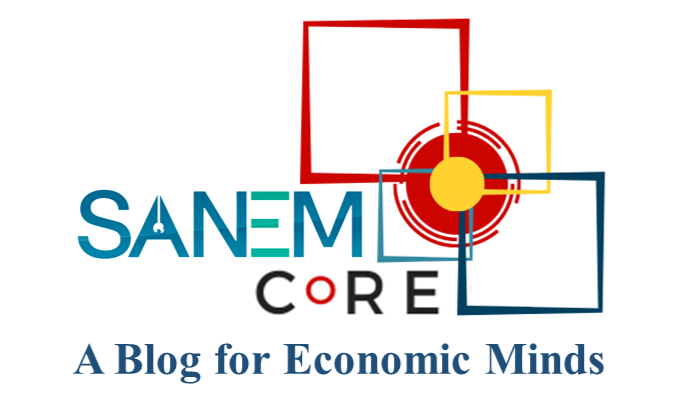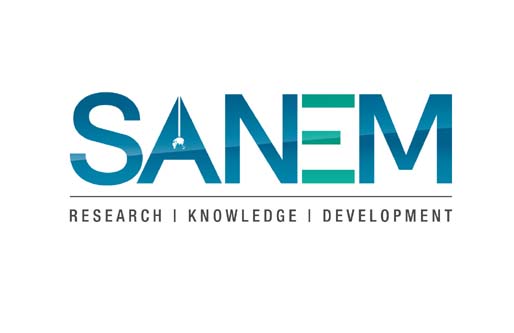Third Bay of Bengal Economic Dialogue 2024 | Curtain Raiser to the Sixth BIMSTEC Summit
11-12 July 2024 | Chulalongkorn University, Bangkok, Thailand
- BIMSTEC started its journey in 1997 in Bangkok, where the four countries of the Bay of Bengal region, namely, Bangladesh, India Sri Lanka and Thailand convened a meeting and jointly formed a new sub-group on 6 June 1997 by the name BIST-EC (Bangladesh, India, Sri Lanka, Thailand – Economic Cooperation). Myanmar attended this summit as an observer and obtained full membership in December of that year. To acknowledge the additional membership, the acronym was changed to BIMSTEC. Subsequently, Nepal and Bhutan also joined in 2004. In the first Summit of Heads of Governments held on 31 July 2004, the leaders of the group formally announced the complete name of the grouping as the Bay of Bengal Initiative for Multi-Sectoral Technical and Economic Cooperation, in short BIMSTEC. In 2011, a permanent secretariat was established in Dhaka. At the highest level, five BIMSTEC Summits have been held so far; one in 2004, held in Bangkok, 2008 in Delhi, then in 2014 at Nay Pyi Taw, 2018 in Kathmandu and one in 2022 in Colombo. India hosted the BRICS-BIMSTEC Outreach meeting at Goa in October 2016. Thailand, the current chair of the BIMSTEC, is going to host the 6th BIMSTEC Summit in Bangkok in 2024.
- To commemorate the 6th BIMSTEC Summit in Bangkok in 2024, South Asian Network on Economic Modeling (SANEM) in collaboration with the Chulalongkorn University, Institute of Trade and Development (ITD) and The Asia Foundation (TAF) organised the third Bay of Bengal Economic Dialogue titled “The New World Order and BIMSTEC” as the curtain raiser to the sixth BIMSTEC Summit. This 2-day international conference was attended by over 100 senior experts, scholars, diplomats, and practitioners in both in-person and virtual modes. Besides, inaugural and valedictory sessions, a total of six plenary sessions and a special session were organized. This conference was also the follow-up conference that SANEM organized in October 2022 in Bangkok at the sideline of the 5th BIMSTEC Summit.
- The geographical contiguity, abundant natural and human resources, rich historical linkages and shared cultural heritage are some of the unique advantages that BIMSTEC enjoys. BIMSTEC shares high trade potential and economic complementarities. Not only an energy hotspot, BIMSTEC’s strategic location is its greatest asset.
- BIMSTEC becomes highly relevant in the following ways. First, BIMSTEC with its unique geographic location can play the role of bridging South Asia and Southeast Asia through trade and connectivity. Second, BIMSTEC member states surround the Bay of Bengal, which is not only a space to support regional trade and transport connectivity, but also connects international maritime trade routes between the Indian Ocean and the Pacific Ocean. Maritime and digital connectivity are the keys to trade and security. Third, BIMSTEC member states are a powerhouse in some of the global products such as garments (Bangladesh), digital services (India), maritime services (Sri Lanka), consumer durables (Thailand), and tourism (Nepal and Bhutan), among others. Therefore, greater intra- and inter-regional cooperation may pave the way for higher trade and growth.
- Global growth is not expected to be high in immediate years due mainly to polycrisis and rising bipolarlism. BIMSTEC today is in a disordered world. De-risking, de-coupling and reconfiguration of production away from Asia’s largest market amid trade/tech tensions are on the rise. Trade barriers are rising across the world. Crisis like the Red Sea is forcing countries to move towards near-shoring and/or multi-sourcing. There are rising challenges in the areas of SDGs, economic, social and environmental. Therefore, economic and geopolitical forces are reshaping the global order. In such an unfolding situation, this conference has recognised regional cooperation and integration as the best way forward.
- Although the BIMSTEC has made some tangible progress in recent years, the region requires an additional push to scale up to a higher level. Global uncertainties are yet to be overcome, and the BIMSTEC faces several challenges both in economic and non-economic areas. A deeper regional understanding of global challenges provides sustainable solutions. BIMSTEC countries need to work on governance, connectivity and trade facilitation, disaster management, climate issues particularly green financing, counter-terrorism, global value chains, digitalization, cross-border digital payment and interoperability, foreign direct investment, implementation of the BIMSTEC master plan of transport connectivity, among others.
- There are many interesting developments in BIMSTEC. Some of the BIMSTEC member states like Bangladesh and Nepal will graduate to the developing world. The period between the 5th and 6th BIMSTEC Summits appears to be a phase of energetic engagements. The conference has noted some major developments. Out of seven members, six countries have established democratic governments and/or rules-based democratic practices. Regional programmes are followed based on need and supported by democratic values and governance. Good governance also means good economics. Toward that direction, BIMSTEC introduced the BIMSTEC Charter in 2022 and implemented it in June 2024. Following the 19th Ministerial Meeting in Bangkok in early 2023, a number of new areas of cooperation emerged. During the Meeting, the Ministers considered and approved several key documents emanating from decisions of BIMSTEC Summits, including the Rules of Procedure for Core BIMSTEC Mechanisms (i.e. the Summit; the Ministerial Meeting; the Senior Officials’ Meeting; and the BIMSTEC Permanent Working Committee); BIMSTEC Sectoral Mechanisms; and BIMSTEC’s External Relations. The Rules of Procedure will be submitted to the 6th Summit for adoption. BIMSTEC has set up an Eminent Persons Group (EPG), which is mandated to make recommendations on the future directions of BIMSTEC; the Agreement on Maritime Transport Cooperation, which is expected to be signed during the sixth Summit; and the BIMSTEC Bangkok Vision 2030, which is to be launched during the 6th BIMSTEC Foreign Ministers had their first retreat in Bangkok in July 2023 and second retreat in 2024 in Delhi.
- BIMSTEC leaders have tasked the Working Group on Rules of Origin to build on the progress made during its 21st Meeting to finalise the Rules for Determination of Origin of Goods and Operational Certification Procedures and Product Specific Rules as a priority in order to finalise the Agreement on Trade in Goods of the BIMSTEC FTA. Besides, the BIMSTEC Transport Connectivity Working Group (BTCWG) has been instructed to expedite the implementation of the agreed activities under the BIMSTEC Master Plan for Transport Connectivity. BIMSTEC leaders have asked to initiate the process of drafting the Standard Operating Procedure (SOP) according to the Agreement on Maritime Transport Cooperation for discussion in the Joint Shipping Committee. They have also urged the BTCWG to finalise the Concept Note of the BIMSTEC Framework Agreement on Transit, Transshipment and Movement of Vehicular Traffic between and among BIMSTEC Member Countries in order to facilitate the formulation of the draft Framework Agreement. The conference has emphasised simultaneous negotiation and finalisation of the BIMSTEC Motor Vehicle Agreement for the Regulation of Passenger, Personal and Cargo Vehicular Traffic between and among the BIMSTEC Member States.
- Regional cooperation has high potential in BIMSTEC. The conference has provided several recommendations on gender and trade, digital economy, governance, environment and climate, digital public infrastructure, SDGs, and GVCs, among others. Stronger digital integration may help embrace sustainable digital transformation as a way to prosperity. It will also strengthen the GVC formation in the region. Greater engagement of the private sector will have a long-lasting impact on the regional integration in BIMSTEC. Creating a Bay of Bengal Investment Fund to support the entrepreneur projects is recommended. To move in this direction, this Conference has recommended strong political leadership.
- While these developments are certainly strengthening the foundation of BIMSTEC, institutions can only be sustained if we promote strong governance in it. Strengthening governance is only possible through the protection and promotion of a vibrant and constructive space for civil society. By promoting reforms in governance and enhancing accountability practices, civil society organizations can significantly contribute to more effective and equitable development outcomes. Regional cooperation can be identified as a vital part of sharing best practices and strengthening governance. The conference has recommended writing a non-white paper on governance.
- Trade is one of the priority areas of the BIMSTEC. However, BIMSTEC is yet to make substantial progress in the reduction of non-tariff barriers; streamlining regulatory frameworks and harmonisation of standards. BIMSTEC leaders have urged the Trade Negotiating Committee and its Working Groups to accelerate the finalisation of the BIMSTEC Free Trade Area and its constituent agreements including their annexures. They have also tasked the Working Group on Rules of Origin to build on the progress made during its 21st Meeting to finalise the Rules for Determination of Origin of Goods and Operational Certification Procedures and Product Specific Rules as a priority in order to finalise the Agreement on Trade in Goods of the BIMSTEC FTA. Trade and transit facilitations must be given top priority along with energy and digital connectivity. The Conference recommended that the BIMSTEC FTA should be concluded in a year’s time. Productivity enhancement, knowledge exchange and mutual recognition of standards and certification, paperless trade, currency cooperation, etc. can make the BIMSTEC FTA more effective and translate comparative advantage into competitive advantage. The conference has recommended setting up a digital dashboard on trade barriers with coverage of NTMs. On the other hand, BIMSTEC-wide through transit is felt essential in order to scale up the integration.
- Enhancing regional identity and cooperation through regular institutional meetings and the establishment of the BIMSTEC Development Fund are important. BIMSTEC’s cooperation with MDBs such as the AIIB, NDB, etc. shall be strengthened. BIMSTEC Technology Bank is a project that is envisaged to offer many important leads in regional development. These programmes may lead to transforming the region’s comparative advantage into a competitive advantage.
- To enhance people-to-people interactions among member countries, initiatives such as educating youth about BIMSTEC’s importance, expanding educational exchange programmes, investing in cross-border infrastructure, and facilitating affordable digital connectivity need to be promoted. Education can be identified as a powerful tool for creating connections, with the inauguration of integrated scholarship programs. The student exchange programme at the school level may also be impactful in cultural exchange. The exchange of parliamentarians, scholars, etc. is important to strengthen regional integration in BIMSTEC.
- The gender gap in trade is wide and growing. Conference has called for gender equality in particular formulation of the trade policy. Women lack funding, venues and opportunities to market their products and engage in cross-border trade. The conference has called for adopting comprehensive measures to promote women-led entrepreneurship, their access to finance, marketing assistance, helping start-ups, access to facilities, etc. Building enabling environments for women in trade will help us in setting in place an equitable and integrated BIMSTEC.
- Without a stronger Secretariat, BIMSTEC integration may not be able to infuse the needed momentum. BIMSTEC Secretariat requires funding, skilling of resources, financial support, etc. The BIMSTEC Secretariat operates with limited financial resources. Inadequate funding hampers its capacity to implement projects, organize events, and facilitate cooperation among member countries. There is a need to allocate sufficient financial resources to the Secretariat to drive meaningful initiatives.
- Bangladesh is going to take over the chairmanship of BIMSTEC from Thailand after the 6th Summit. The Conference has identified a set of supportive recommendations leading to add further momentum.
- Organisers of the third BoBED thanked the host, Chulalongkorn University, for extending an excellent support and cooperation in organising the curtain raiser to the 6th BIMSTEC Summit. Participants of the conference appreciated the BIMSTEC Secretariat and the Secretary Generals, both former and current, for whole-hearted support to the programme. The BoBED has been grateful to The Asia Foundation (TAF) for extending its valuable support. The organisers are equally grateful to the UNESCAP for their support and participation.
- This Declaration is handed over to the BIMSTEC Director, Mr. Tshewang Dorji T requested him to report it back to the sixth BIMSTEC Summit.
12 July 2024, Bangkok


RECENT COMMENTS